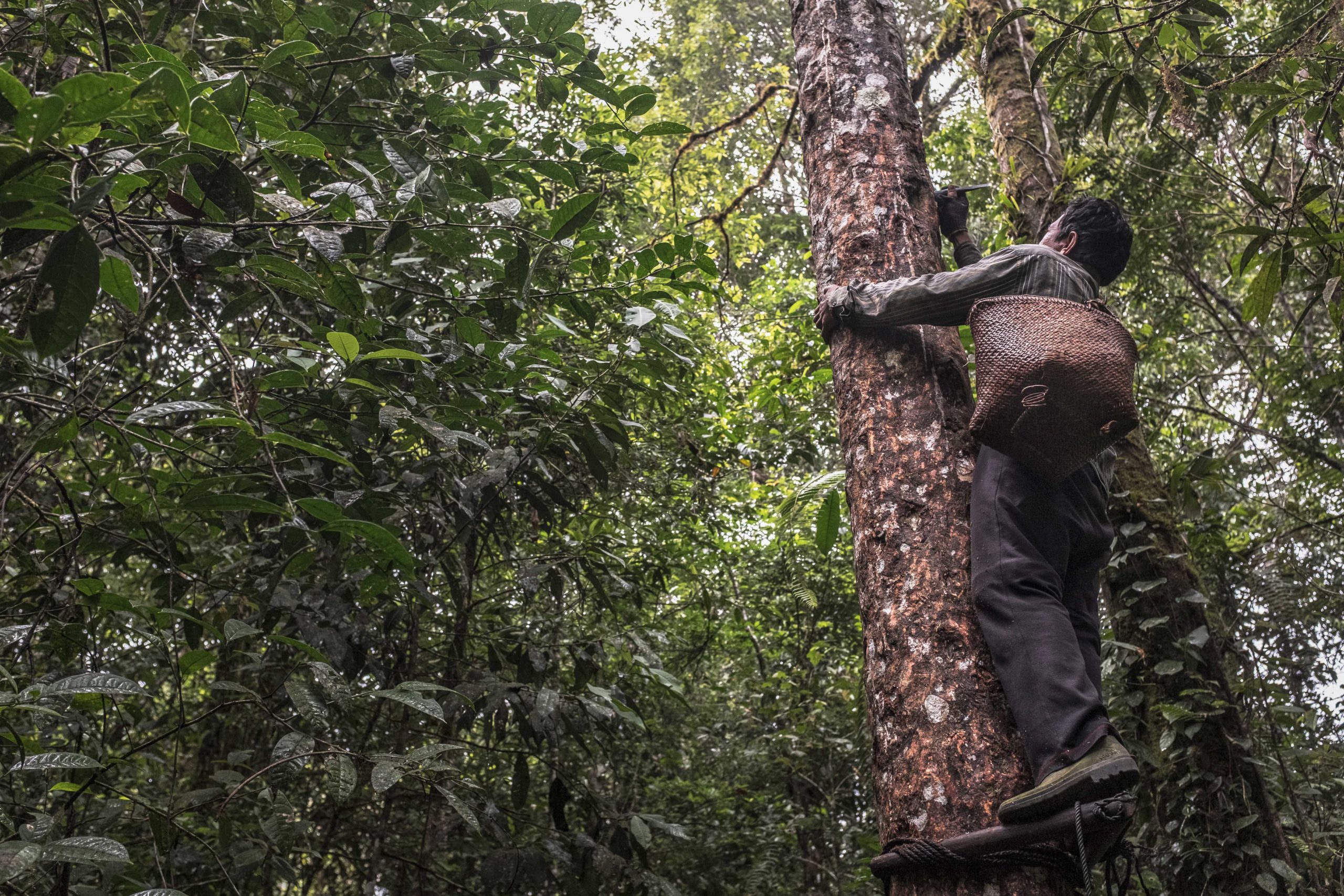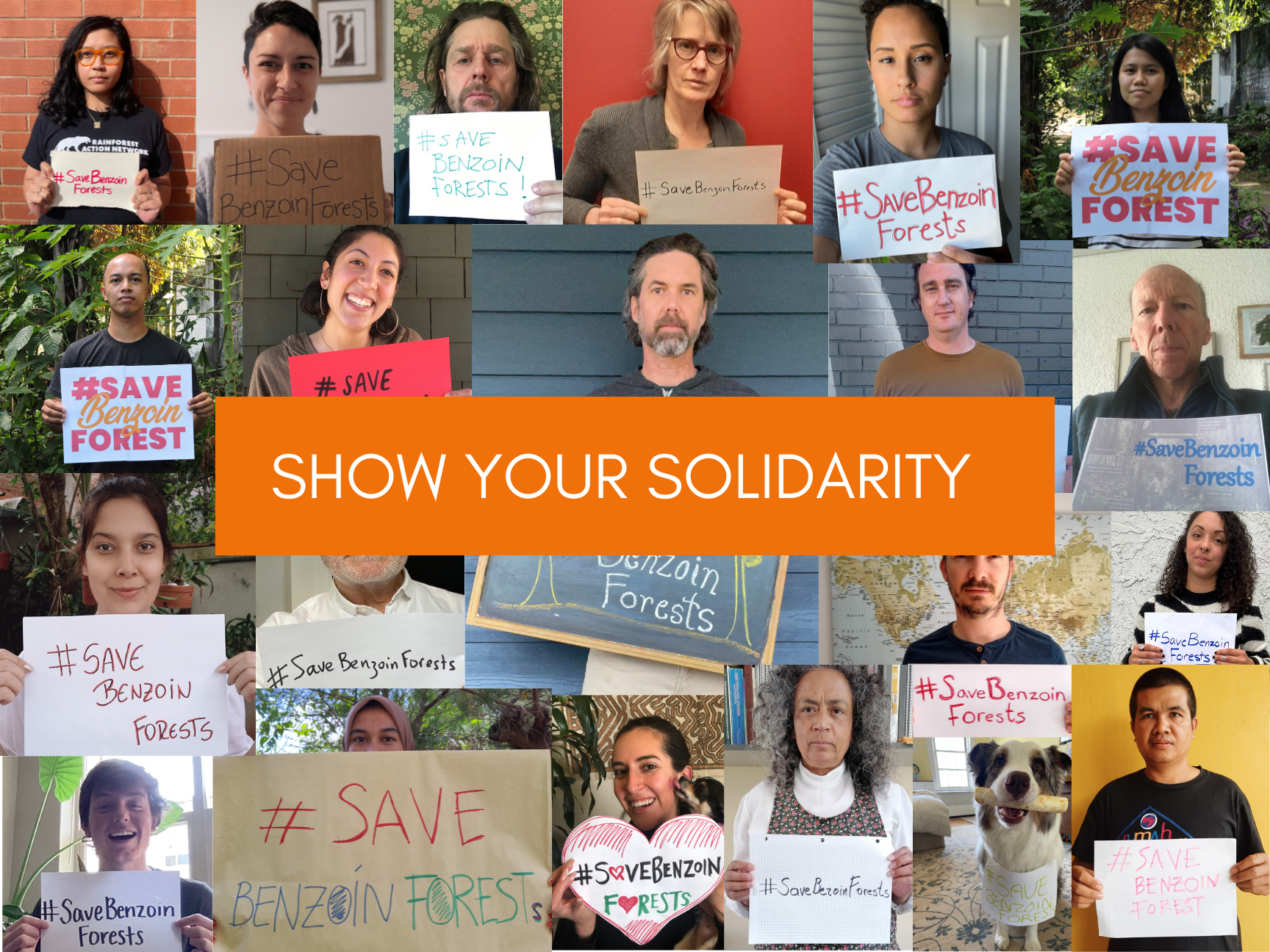A small Indigenous community in Indonesia fights to keep forests standing.
Klik disini untuk lihat halaman Bahasa Indonesia >>
ウェブサイトの日本語版はこちらから >>
Indonesia’s rainforests play a critical role in mitigating global climate change and the crisis of global biodiversity loss, and frontline communities like the Pargamanan-Bintang Maria of North Sumatra are fighting to protect them. But efforts to secure their land rights have stalled — and now they need our help protecting some of Lake Toba’s last intact rainforests.
The Pargamanan-Bintang Maria people trace ownership of their land to 125 years ago, when a local ruler granted them land rights on the condition that they never transfer them to anyone else. Their nearly seven-square mile communal territory remains mostly forested, with natural landmarks, including rivers and varieties of plants, setting it apart from neighboring communities.
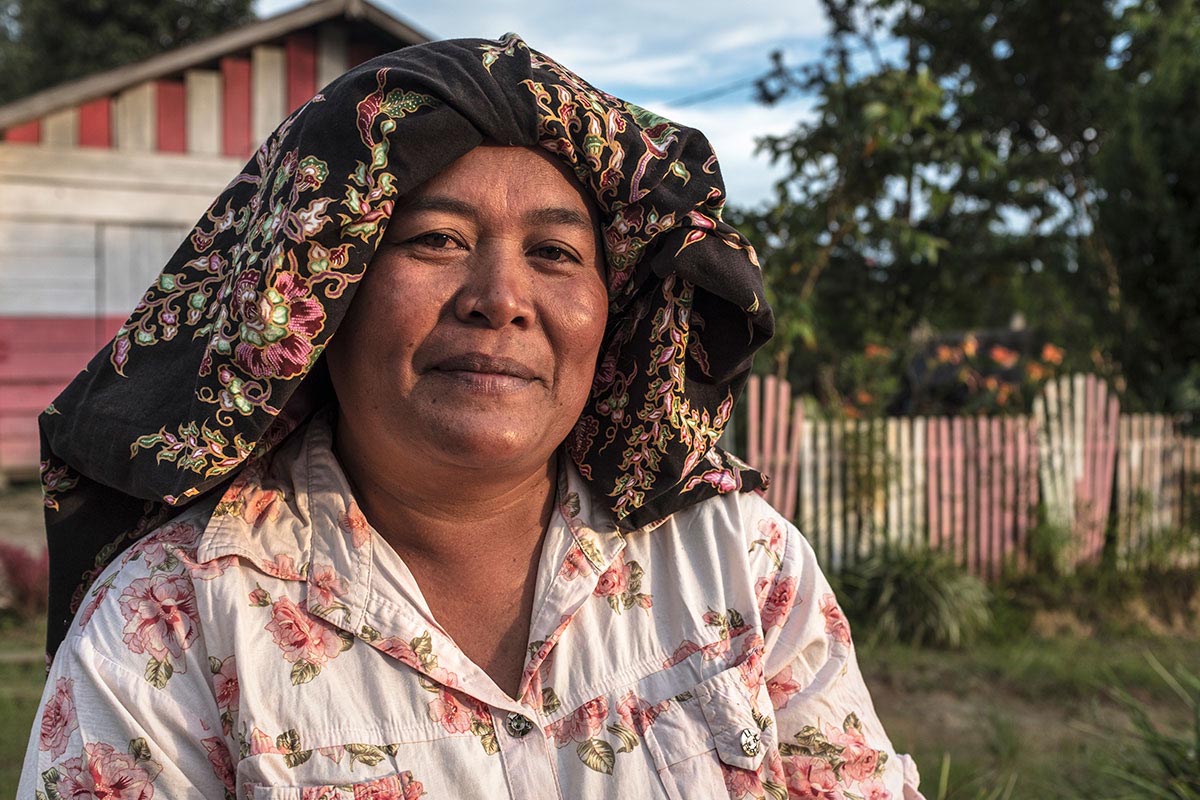
The Pargamanan-Bintang Maria customary forest is important to the community because it is their source of livelihood, provides for the children’s education, for customs, for everything for the Pargamanan-Bintang Maria community. According to our ancestors to the current 5th generation, benzoin has been our source of livelihood for years for the Pargamanan-Bintang Maria community. Eva Junita Lumban Gaol, Community Organizer.
The Pargamanan-Bintang Maria people and their Indigenous kin around Lake Toba, known collectively as the Batak Toba, have been dependent on forests for generations, collecting fruits and vegetables, hunting and harvesting Benzoin (kemenyan) incense from trees unique to the region. Their forests play a critical role in the health of the rivers flowing to downstream communities and provide shelter, medicine, food and livelihoods.
Benzoin forests (tombak haminjon) have ecological and spiritual significance for Batak Toba peoples, producing a fragrance similar to frankincense. Benzoin’s many uses as a perfume, incense, medicine and cooking spice have made it the backbone of the local economy.
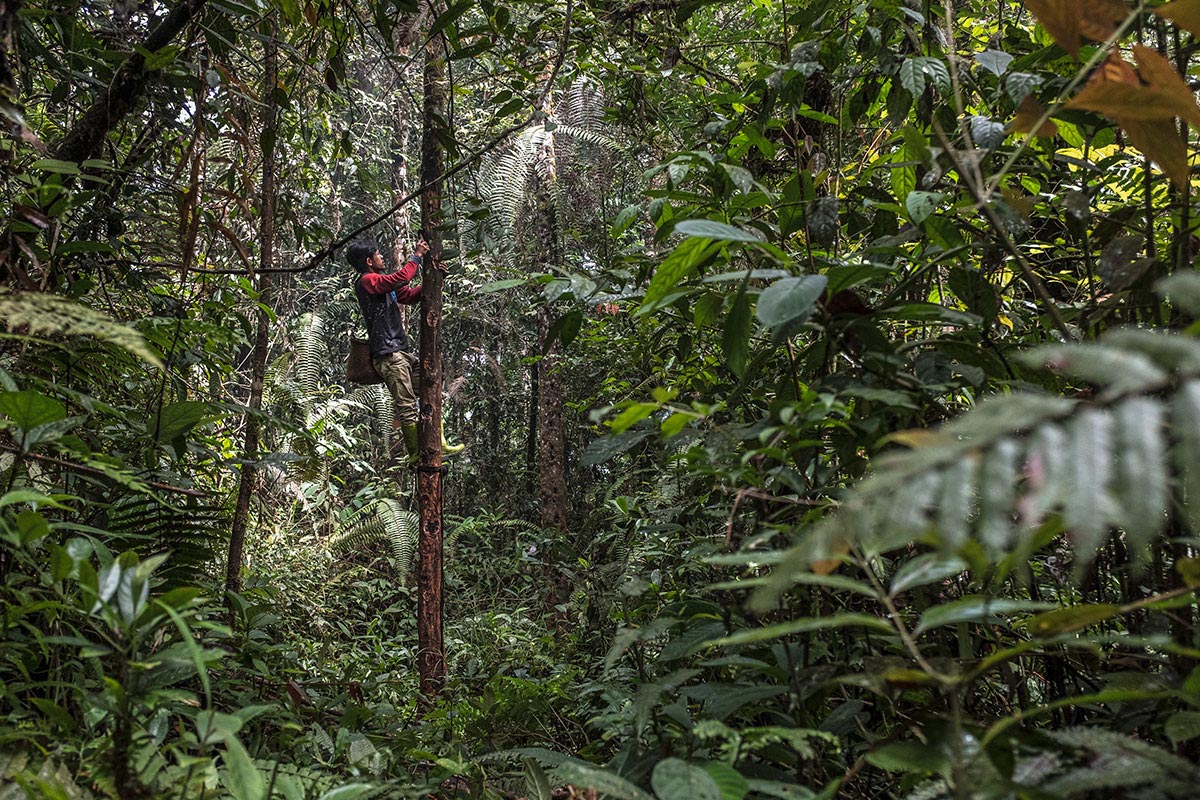
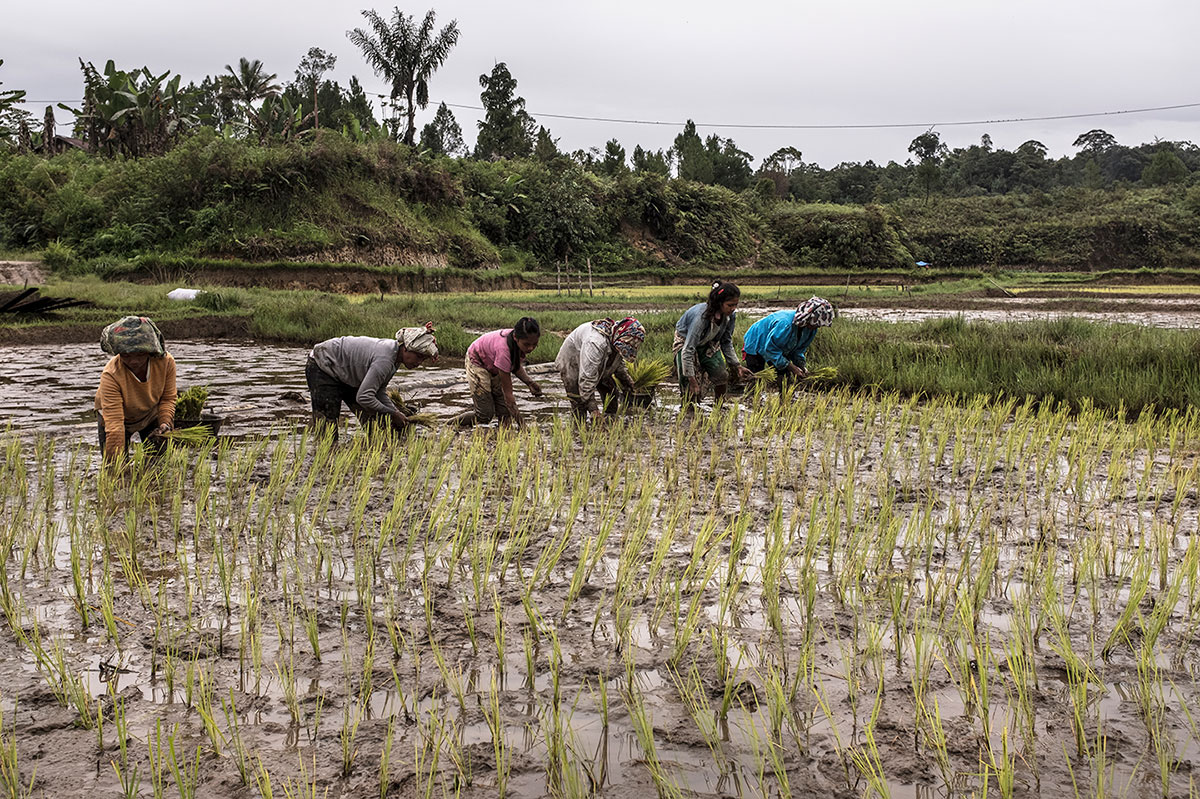
Pargamanan-Bintang Maria forests, livelihoods and way of life are under threat as the community awaits legal recognition of their customary forest rights (hutan adat).
Pargamanan-Bintang Maria community members, along with 23 surrounding Batak Toba communities, have been in conflict with PT. Toba Pulp Lestari (TPL) for decades. Originally called PT. Inti Indorayon Utama (Indorayon), the company won sweeping concessions to develop pulp and paper plantations on Batak Toba customary lands in the 1980s.
As TPL began operating in these concessions, it destroyed Batak Toba forests, farms and Benzoin trees. Pargamanan-Bintang Maria community members report that TPL even destroyed trees that were hundreds of years old and up to 3 meters (roughly 10 feet) in diameter. As TPL cleared forests, it planted eucalyptus trees for industrial pulpwood production, drying up rivers and devastating the local environment.
Batak Toba communities banded together in the 1980s and 90s to demand the return of their ancestral forests from Indorayon. In 1999, they managed to shut down TPL, but the company would later return under the name Toba Pulp Lestari and resume operations in 2003.
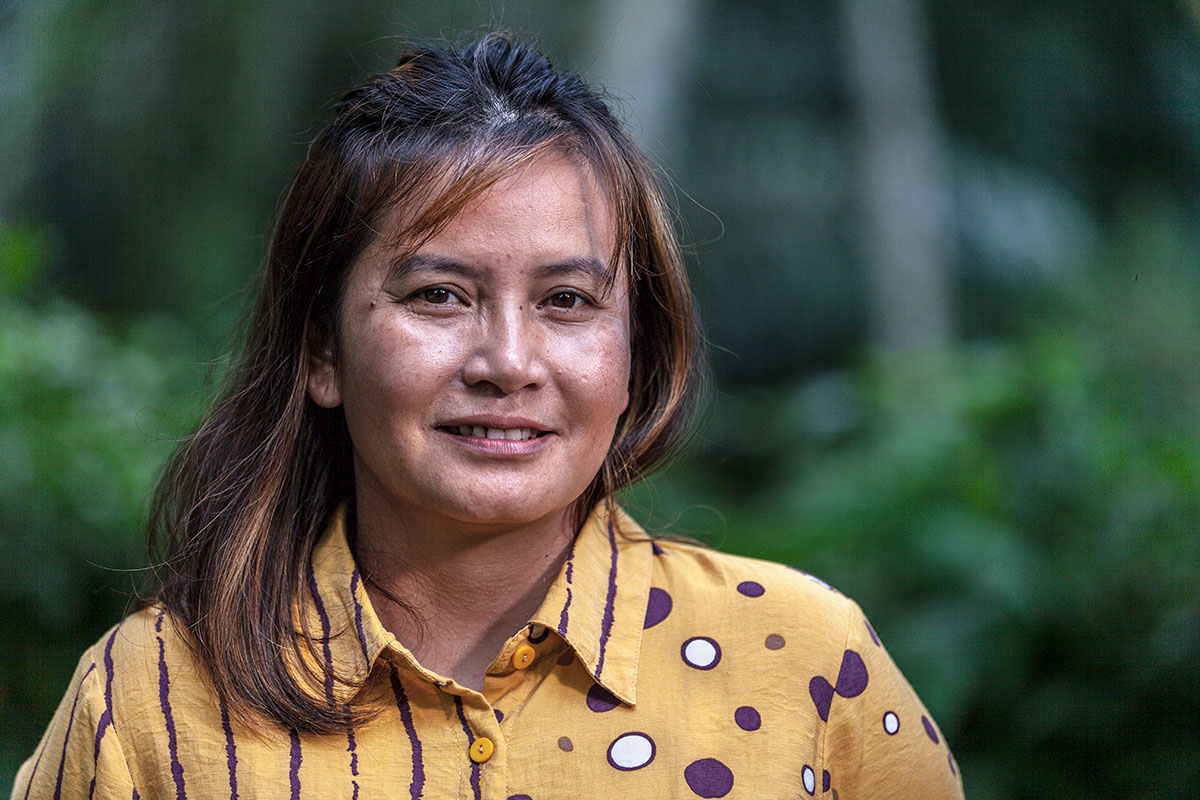
In the 1980s and 1990s, until 1998, there was a lot of community resistance against TPL, especially in Toba. The social movement at the time succeeded in temporarily shutting down TPL during President Habibie’s term, but then President Megawati reopened under a new paradigm. Since its operation, TPL has carried out many instances of intimidation and criminalization in the concession. Twenty-four people were named suspects and more than 40 people were arrested [in another community]. There was much criminalization, including through intimidation letters, prohibiting communities from working on their farms and removing communities’ crops. Delima Silalahi, Program Director of Kelompok Studi dan Pengembangan Prakarsa Masyarakat (KSPPM).
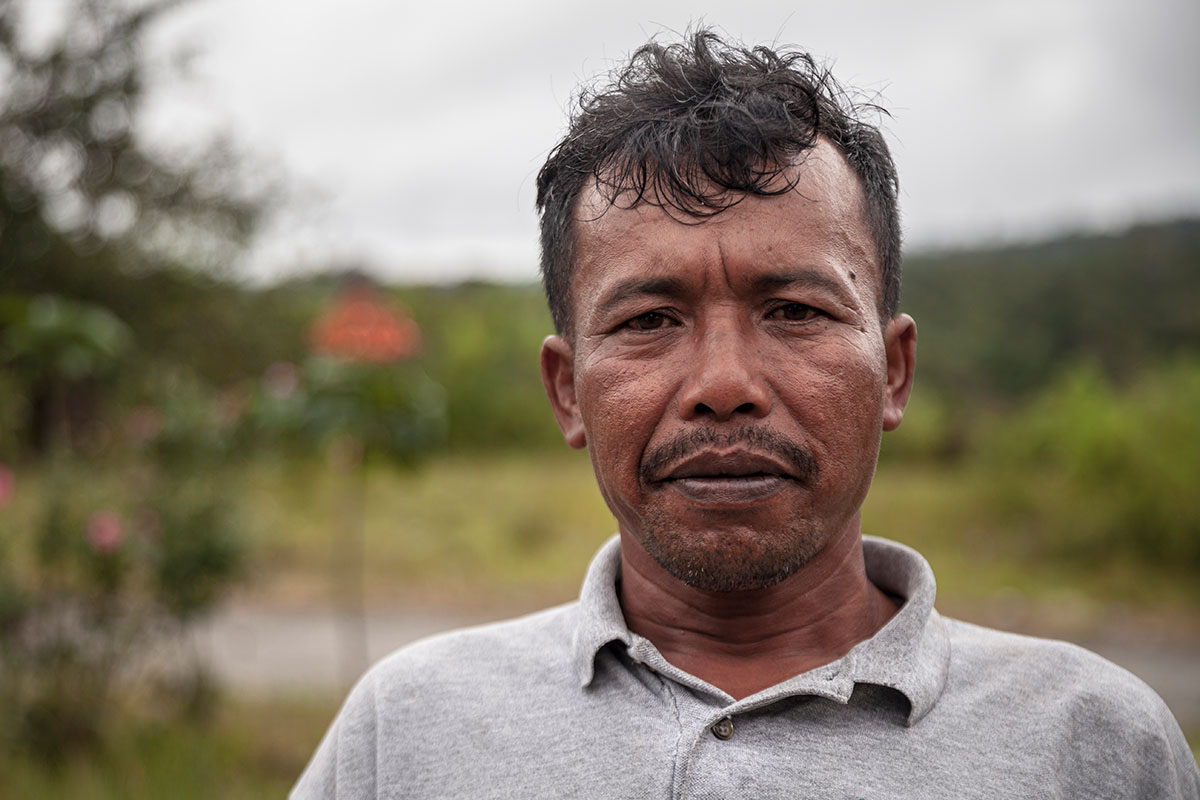
Our demand from TPL is that they stop going into our customary land. Stay in the land they already have, not in our customary land. We will continue to cultivate our customary land like our ancestors did. That’s how the Indigenous communities here live. We know best about how to take care of our forest, [other] people don’t know. So TPL, let them go. We are the stewards of our customary land. I am the Raja Huta, the leader in the village. My grandmother was a founder of this village. To the day I die, [the land] will stay with my children, for generations. It will not be given away. Rajes Sitanggang, Raja Huta (Village Chief) of Pargamanan-Bintang Maria.
PT. Toba Pulp Lestari, a pulp company notorious for violating rights.
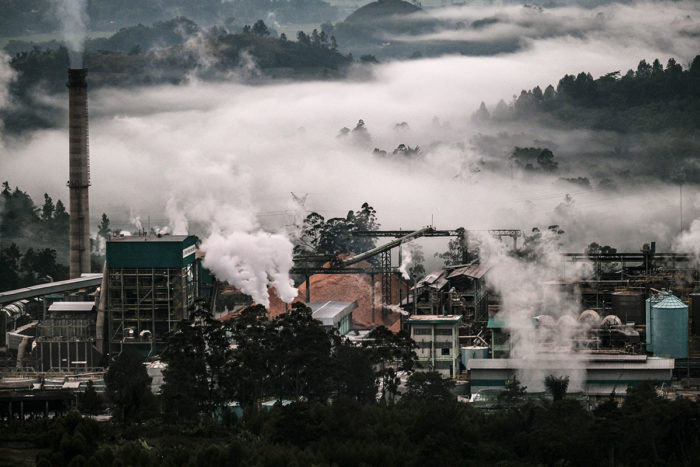
TPL is a pulp and paper producer under the common control of Royal Golden Eagle (RGE) Group, a multibillion-dollar corporate group that sources palm oil and paper for major Western brands like Procter & Gamble, the maker of Charmin and Crest toothpaste. RGE group is infamous for engaging in rights violations and deforestation. TPL denies it is part of RGE group despite its close ties to RGE’s infamous founder and owner, Mr. Sukanto Tanoto.
Watch this video portraying the Pargamanan-Bintang Maria community’s fight!
TPL must respect the Pargamanan people’s right to Free, Prior, and Informed Consent.
TPL did not consult or inform the Pargamanan community before beginning operations in their forests in 2003. TPL employees reportedly told community members that they will clear the forest “with or without your approval.” TPL also used security guards and local law enforcement to intimidate community members and discourage dissent.
TPL’s concession now overlaps over 40% of Pargamanan-Bintang Maria land. One-third is industrial pulpwood and the remainder is vulnerable to conversion at any time in the future. Although some community members have sided with TPL over time, nearly three dozen Pargamanan-Bintang Maria families remain in opposition. Therefore, TPL’s continued expansion into their Indigenous territory under the pretense of broad community consent is invalid.
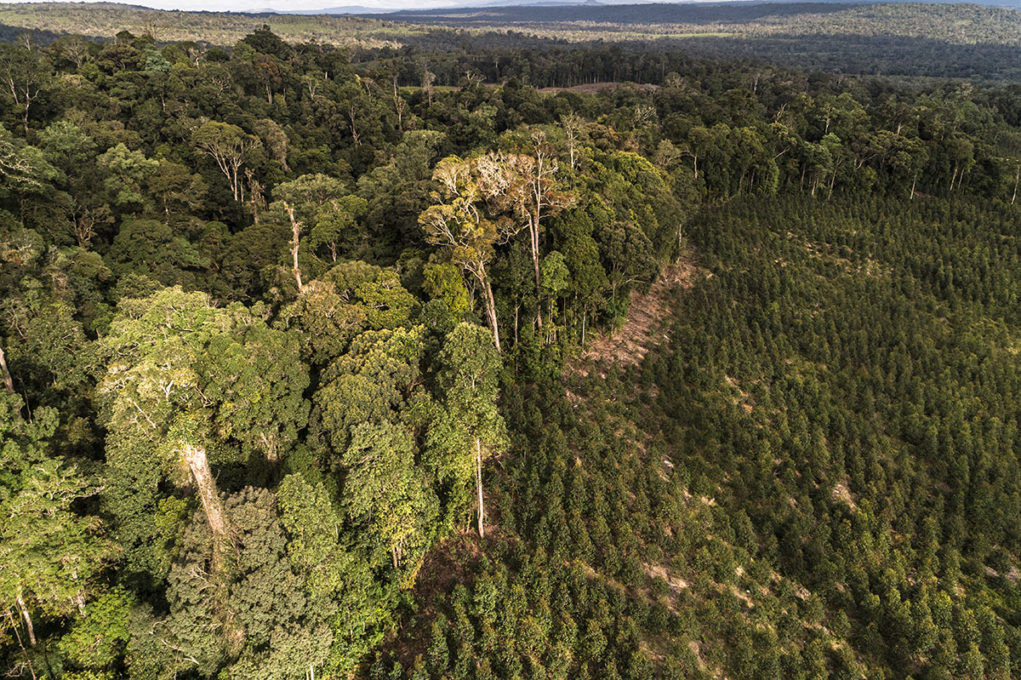
The Ministry of Environment and Forestry must step in and protect the Pargamanan-Bintang Maria community’s land rights.
Although the Indonesian government began conducting verification of 18 Batak Toba communities’ customary forest claims in 2021 — resulting in six Indigenous Batak communities receiving legal recognition of their customary forests — the government still has not verified the Pargamanan-Bintang Maria community’s customary forest claims. Their bid for recognition has stalled at the local level.
P&G must pressure Royal Golden Eagle (RGE) to remove Pargamanan-Bintang Maria’s lands from TPL concessions and take responsibility for its rights violations, or else lose P&G’s business.
TPL’s continued occupation of Pargamanan-Bintang Maria territory and violence toward the community put TPL and RGE directly at odds with P&G’s “No Deforestation, No Peat, No Exploitation” supply chain policies.
TPL claims it resolved land conflict with the Pargamanan people under a 2009 agreement, but that agreement does not cover the 40% of Pargamaman territory that is still under company occupation. TPL also refuses to acknowledge the violence and intimidation it has perpetuated on Indigenous Batak lands since 1998.
The Batak Indigenous Movement Alliance is calling for solidarity, will you answer the call?
Shutdown PT. TPL and Give Back Customary Land to Indigenous Peoples in the Lake Toba Area
Together we can stop deforestation and combat climate change by joining Indigenous communities’ fight for their lands.
RAN is committed to the Jemez Principles and we follow Indigenous leadership in the land rights movement. To combat climate change and stop deforestation, land must be returned to Indigenous communities.
Special thanks to our partners in Indonesia
